Single-Cell Genomics in Biomedical Science Symposium
SBS Research Committee Symposium on the 8th of September - registrations closed.
Single-cell genomics applied to developmental biology was hailed by Science as its “Breakthrough of the Year” in 2018. After the first single-cell transcriptome was published in 2009, the following decade saw biomedical science take a breathtaking leap into this field.
We have seen the progression of single-cell genomics from niche to mainstream, from fad to necessity. But the journey from discovery to increased biological understanding is not smooth, nor is it complete. A challenge to convert the promise of single-cell genomics into tangible human health outcomes has been made.
Our speakers have answered this call by investigating basic cellular biology, developmental biology, and clinical disease, by innovating new hardware and wet-lab solutions, and by developing new computational methods to analyse high-dimensional data. The single-cell genomics field has been defined by a spirit of openness and enthusiasm. Please help maintain this spirit by registering for our symposium, “Single-cell genomics in biomedical science”.
From 9.30am on the 8th of September, a mix of international, national, and local speakers will discuss the latest discoveries, the practicalities and the challenges of applying single-cell genomics approaches in the biomedical sciences.
Program
| Time | Title of session | Speaker |
|---|---|---|
| 9.30am | Welcome | Professor Jenny Wilkinson-Berka Head of School |
| 9:35am | Introduction to the Symposium | Dr Ashraful Haque |
| 9.40am | Mapping the temporal and spatial dynamics of the human endometrium in vivo and in vitro | Dr Roser Vento-Tormo Wellcome Sanger Institute, UK |
| 10.10am | A novel lymphoid-primed progenitor marked by Dach1 downregulation identified with single cell multi-omics | Dr Shalin Naik Walter and Eliza Hall Institute of Medical Research |
| 10.30am | Movement Break | |
| 10.40am | The Human Cell Atlas | Dr Jay W Shin Center for Integrative Medical Sciences (IMS), RIKEN Yokohama Institute |
| 11.10am | Break | |
| 11.30am | Analysis through uncertainty quantification for spatial transcriptomics data | Dr Valentine Svensson California Institute of Technology and FL60 Labs Inc., MA, USA |
| 12pm | Single-cell genetics: effects of DNA variation at a new resolution | Dr Davis McCarthy St Vincent's Institute of Medical Research |
| 12.20pm | Navigating the landscape of scRNA-seq analysis | Professor Alicia Oshlack Peter MacCallum Cancer Centre |
| 12.40pm | Lunch | |
| 1.30pm | Profiling rogue lymphocytes in autoimmune disease using single-cell multi-omics | Dr Manu Singh Garvan Institute of Medical Research |
| 1.50pm | Discrete Microbial and Immune Niches of the Human Colon | Dr. Kylie R James Garvan Institute of Medical Research |
| 2.10pm | How to Get Started with Single Cell Transcriptomics | Ms Carolin Tumpach Peter Doherty Institute for Infection and Immunity |
| Dr Paul Gooding Millennium Science | ||
| 2.50pm | Closing address | Professor Erica Fletcher Department of Anatomy and Neuroscience |
| 3pm | Close | |
About the speakers
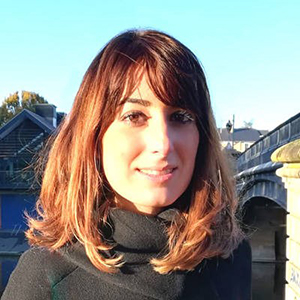 | Dr Roser Vento-Tormo Dr Roser Vento-Torno's research is focused on the adaptation of immune cells in tissues and their function in steady state and inflammation. Her team uses genomics, spatial transcriptomics and bioinformatics tools to reconstruct the microenvironment that will shape immune cellular identity and function. Read about Dr Vento-Tormo's research here. |
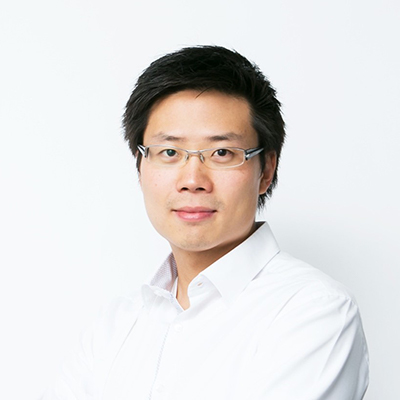 | Dr Jay W Shin Dr Jay W Shin acquired his PhD at ETH Zurich, Switzerland after his research training at Harvard Medical School (HMS). During this period, Jay investigated Transcriptional Regulatory Network controlling tumor angiogenesis. Passionate for gene regulation, he continued his research at the RIKEN Institute, Japan as a postdoctoral fellow. Now, as a team leader, Jay is co-leading international consortiums: FANTOM6 and Human Cell Atlas. Jay enjoys building functional genomics platforms to decipher the molecular mechanisms involved in gene regulation, cellular plasticity and disease. |
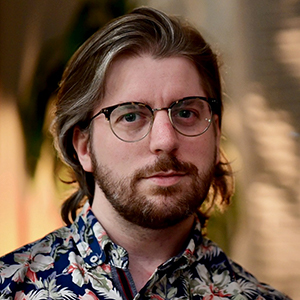 | Dr Valentine Svensson Dr Valentine Svensson did his PhD with Sarah Teichmann at the Wellcome Sanger Institute investigating gene expression in cells undergoing phenotype transitions using scRNA-seq, in particular in the context of immune responses. He moved to Caltech for a postdoctoral scholarship to work with Lior Pachter on analysis methods for single cell assays. Currently Valentine is a scientist at Serqet Therapeutics, a biotechnology company in Boston identifying therapeutic strategies targeted to responder patient populations for various complex diseases. |
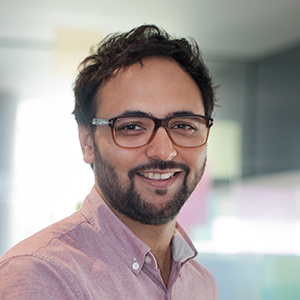 | Dr Shalin Naik Dr Shalin Naik is a biologist who uses different single cell technologies to discover how the immune system is generated from stem cells. Shalin heads a Laboratory in the Immunology Division at the Walter and Eliza Hall Institute of Medical Research. Read about Dr Naik's research here. |
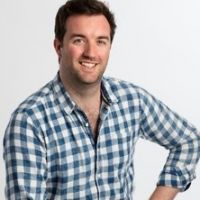 | Dr Davis McCarthy Dr Davis McCarthy started in Bioinformatics as a UROP student (and Honours student, and RA) with Gordon Smyth in the Bioinformatics Division at the Walter and Eliza Hall Institute in Melbourne, Australia. He worked on differential expression methods for RNA-seq data, most notably the edgeR package. He completed a DPhil in Statistics at the University of Oxford under the supervision of Prof Peter Donnelly, before undertaking a postdoc in Dr Oliver Stegle's group at the European Bioinformatics Insitute in Cambridge, UK. At EBI, Davis worked on single-cell methods development and on projects linking DNA variation to single-cell gene expression. He returned to Melbourne in late 2018 to start the Bioinformatics and Cellular Genomics group at St Vincent's Institute of Medical Research, joint with the Melbourne Integrative Genomics unit at the University of Melbourne. Read about Dr McCarthy's research here. |
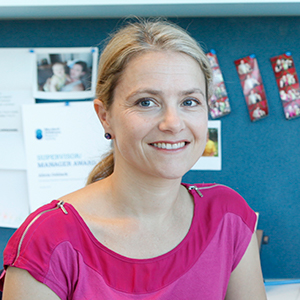 | Professor Alicia Oshlack Professor Alicia Oshlack has been at the forefront of bioinformatics research for more than 15 years. She has recently started a new role as the (co)Head of the Computational Biology Program at the Peter MacCallum Cancer Centre after leading the Bioinformatics group at the Murdoch Children’s Research Institute for more than 8 years. She is best known for her large body of work on transcriptional analysis and epigenetics. In addition, Oshlack is internationally recognised for her development of bioinformatics methods for a range of applications including single cell RNA-seq, methylation and genomic analysis. Oshlack is involved in many cutting edge collaborative projects related to disease and development. She has published more than 90 papers and developed more than a dozen software packages. Oshlack has been recognised by several awards including the Australian Academy of Science, Gani Medal for Human Genetics (2011) and the Georgina Sweet Award for Women in Quantitative Biomedical research (2016). |
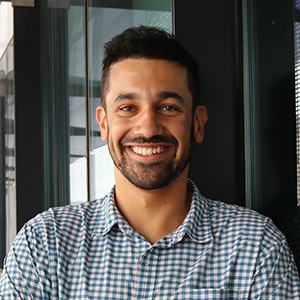 | Dr Manu Singh Dr Mandeep Singh is an early career researcher in the Immunogenomics Laboratory at the Garvan Insitute of Medical Research and lead a research program that develops and applies single-cell genomic technologies to profile pathogenic lymphocytes in human autoimmune diseases. He completed a PhD in 2017 at the Australian National University under Prof. Chris Goodnow investigating the cellular and genetic basis of T cell tolerance. His research has pioneered the development of novel technology to characterise antigen-specific B and T lymphocytes, including RAGE-Seq which enables high-throughput targeted long-read single cell sequencing of both the transcriptome and B and T cell repertoire (Singh et al. 2019, Nature Communications). Recently, he applied single cell DNA and RNA multi-omic technology to track the clonal evolution of pathogenic B cells making autoantibodies in patients with Sjogren’s syndrome to reveal somatic mutations as a key factor for how these cells escape tolerance checkpoints (Singh et al. 2020, Cell). Read about Dr Singh's research here. |
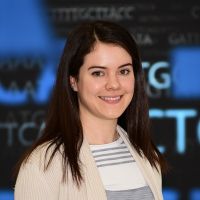 | Dr. Kylie R James Dr Kylie James has newly joined the Garvan Institute as a Group Leader supported by an NHMRC Investigator Grant and Spinak Fellowship. Dr James specialises in single-cell transcriptomics to investigate gut immunity in health and disease, and today will talk to us about single-cell RNA sequencing technology to study the immune environment of the human gut and how it changes in relation to the neighbouring bacteria. |
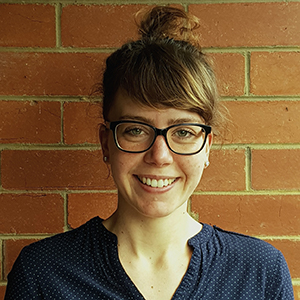 | Ms Carolin Tumpach Carolin Tumpach moved to Melbourne from Germany in 2011 after finishing her undergraduate studies in Pharmaceutical Sciences at the Ludwig-Maximilians University in Munich. Carolin has been working with Sharon Lewin’s group at the Doherty Institute since 2015, investigating HIV-1 viral persistence and latency. Earlier this year she took on the role as high containment laboratory area manager for the HIV and COVID labs and she is currently building the ‘Doherty Chromium’ platform to assist researchers across the institute with their single cell transcriptomics experiments. |
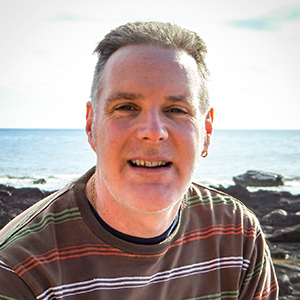 | Dr Paul Gooding Dr Paul Gooding moved to Adelaide in 1998 after completing a PhD in Plant Molecular Genetics at the John Innes Centre in the UK. He held a post-doctoral position at CSIRO that focussed on post-harvest quality of fruits and vegetables, then moved to the University of Adelaide to run their cereal genetic transformation facility. He then worked as Senior Scientist with the Australian Genome Research Facility (AGRF), running a suite of Next-Gen Sequencing machines as well as coordinating genotyping and diversity profiling projects. He joined Millennium Science in 2019 as a Field Applications Scientist, covering the company's genomics portfolios across Australia and New Zealand. |